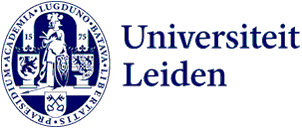
Language during war: the changing position of Russian in Ukraine
The impact of war extends beyond destroyed buildings and torn families. In bilingual Ukraine, the ongoing war with Russia is a major driver for increasingly discarding the Russian language. What does this mean for the position of Russian in Ukraine?
The Russian language plays an important role in Ukraine's history. Until the fall of the Soviet Union, it was the country's official language. Children were therefore taught in Russian and all government affairs were handled in that language. Ukrainian was suppressed to varying degrees by the government. Even after the country declared independence in 1991 and Ukrainian was the only official language, Russian remained the most widely spoken language in several areas. This was the case, for instance, in the Donbas in the east, but also in major cities like Kiev. The two languages coexisted alongside one another and intermingled without any problems. In fact, a large part of the population mastered both languages.
Turning point
The turning point came in 2014. In that year, Russia annexed Crimea and installed pro-Russian separatists in Russian-speaking eastern Ukraine. At the same time, Russia also spread aggressive anti-Ukrainian propaganda among the Russian-speaking population. This fanned fear among Ukrainians. 'Look at Belarus, for example. The country is under a total Russian sphere of influence and there Belarusian has more or less disappeared completely. Only Russian remains,' Professor Egbert Fortuin explains. 'But language plays a crucial role in the idea of national identity.'
To avoid that disaster scenario, the Ukrainian government decided to strengthen the position of the Ukrainian language and culture. 'By passing language laws, among other things, the government aimed to increase cohesion within the country,' Fortuin says. For instance, the compulsory language in primary education changed to Ukrainian and radio stations were only allowed to play a limited number of records in Russian. 'This reinformed the status of Ukrainian, but at the expense of Russian.'
Symbolic values
Ten years later, the position of Russian is once again under a magnifying glass due to the large-scale invasion. Although Russian-speaking Ukrainians feel as connected to their country as other Ukrainians, more and more seem to choose to switch completely to Ukrainian. 'That change shows the symbolic values Ukrainians attach to speaking one language or the other,' says Fortuin. 'That’s not surprising, as Russia has often denied Ukrainian identity. It gives Ukrainians extra reason to strongly emphasise the Ukrainian identity, by favouring Ukrainian above Russian, for example.'
‘That's a shame,’ Fortuin said. 'The diversity of languages within Ukraine seems to me to be a richness that should be welcomed.' At the same time, he understands the position Ukrainians currently find themselves in. 'It is terrible that people like Putin abuse something like language for political purposes. Russian is not only Putin’s language; it is also the language of Ukrainians and of people resisting Russia’s actions inside and outside Russia. It is also the language of the poetry and literature of Russian writers and poets in exile such as Maxim Osipov, who is a guest lecturer in the Leiden programme. 'The war is terrible, but especially now it is important to explore all aspects of the interesting and rich history of Russian as well as Ukrainian.'
